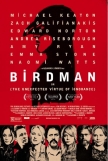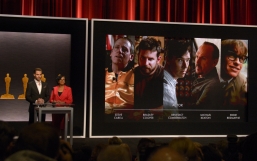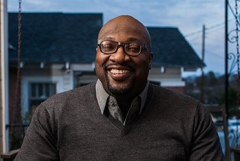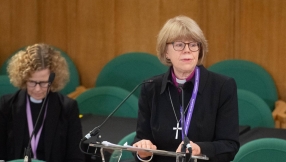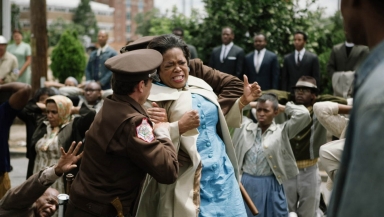
Let's get this out of the way right now: David Oyelowo's omission from the Best Actor Oscar nomination list is nothing short of scandalous.
His performance as Dr Martin Luther King in Ava DuVernay's Selma is a career-defining masterclass in total acting embodiment. However good Bradley Cooper might be in American Sniper, or Steve Carell in Foxcatcher, there's no chance that either of them out-acts Oyelowo. As Selma unfolds, it's difficult not to let that thought fester.
Charting the story of one of the key moments in the American civil rights movement, Selma follows Dr King and his non-violent army of campaigners and religious leaders as they attempt to win a true right to vote for black Americans. The action centres on the Alabama town which gives the film its name, where more than 50 per cent of the population were black and only two per cent of them were eligible to vote. The town of Selma was a perfect site for King's peaceful PR offensive, its activist black population and racist sheriff contributing to a perfect storm of highly-publicised disturbance.
As we look on with the benefit of historical knowledge, we of course know how it all ends. Yet DuVernay pulls no punches in showing us how history has smoothed over some of the grim rough edges of the story. En route to victory, King's campaign endures brutal violence, humiliation and even murder.
The sheer discomfort of watching the atrocities committed in the initial Selma protests is almost unbearable; at times it's tough to keep looking at the screen, not just because of what is happening, but because we know it really happened. While Selma is both a biopic and a historical drama, it is also a kind of horror movie.
Despite a stellar supporting cast, the film orbits around Oyelowo. The focal point of almost every scene, he takes the unenviable job of portraying one of histories greatest leaders and orators in his stride. When he gives one of Dr King's famous speeches he is note-perfect, yet he also plays the role with great humanity and vulnerability. DuVernay hasn't set out to give us a messianic version of King; he's weak at times and plagued with self-doubt, and there are hints at personal indiscretions too. He's not a perfect man, but he is a great man.
The same could be said of Selma as a whole. While history somewhat constrains the story that can be told, the film lacks a real finale, and is strongest and most dynamic in its middle section, as the protest marches themselves first fail and then finally succeed.
Yet despite the slight loss of momentum at the end, which ironically comes just as the movement itself truly marches on, there is a clear sense that we're watching something great and meaningful unfold on screen. Selma is an important film but never an overbearing or moralising one; there are no heavy-handed subtexts, although plenty can be drawn from it.
While King and his collaborators were all Christians, and mostly clergy, the theme of faith is handled with a fairly light touch. The role of God in the movement is a delicate golden thread running throughout the movie. At one point DuVernay places Oyelowo just off-centre in a church-based shot, and allows a brightly lit cross to dominate the screen; at another spine-tingling moment, King brings a high-intensity scene to a standstill by stopping to kneel and silently pray. One memorable scene also contains a powerful apologetic for suffering, as King tells a grieving father that "God cried first" over the murder of his activist son.
And then, in the film's closing frames, the director finally sets King's faith (and that of the committed Christian who plays him) free as he shouts the words of a hymn in victory.
Selma is a great film illuminated by a sensational performance. It deserves far greater recognition from awards bodies, but it will have to make do with critical praise and commercial success. Filmed around the same time as last year's unrest in Ferguson, it serves as a reminder that not only does American (and Western) culture have we much to regret, but we also have a long way to go before we truly fulfil Dr King's dream of a society that does not see in terms of black and white.
It is also a reminder of the prophetic role that the church has played in justice and social change, and could do again. Perhaps David Oyelowo's performance will inspire a new generation of potential MLKs to believe that they can change the world. Ultimately, I think he'd take that legacy above an Oscar statuette.
Martin Saunders is an author, screenwriter and the Deputy CEO of Youthscape. Follow him on Twitter @martinsaunders










